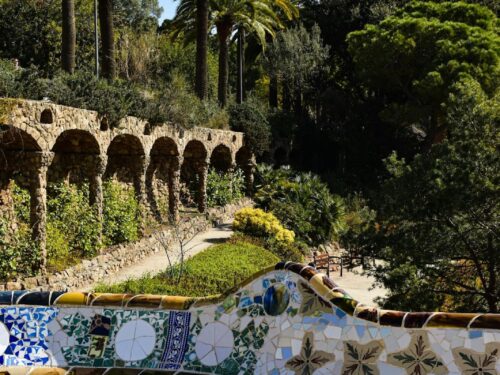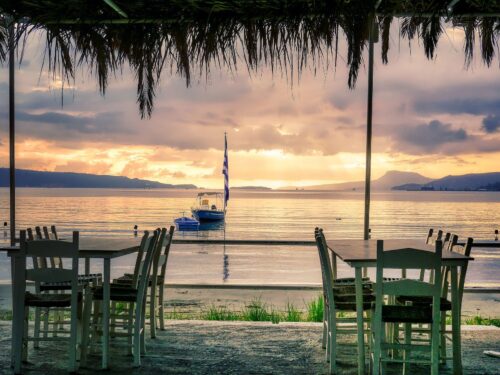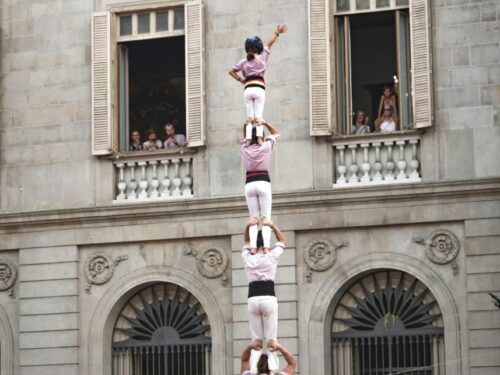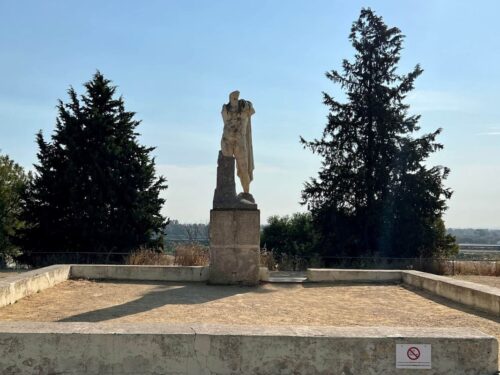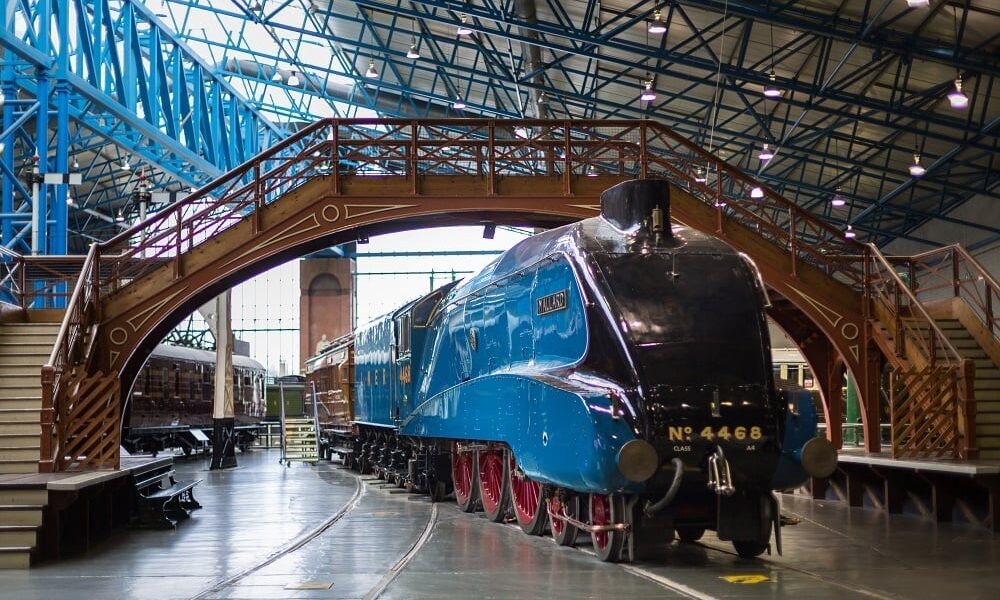
It is easy to forget, but the United Kingdom is not a single country. Instead, it is made up of four nations, in the shape of England, Scotland, Northern Ireland and Wales.
Each of those countries has enough to satisfy anyone who wants to take a trip to the UK. Most people spend their holidays in one for that reason, as well as the fact that journeying between them can be expensive.
The latter point should not worry you too much though. There are ways of travelling the entire UK on a budget.
That will let you experience everything from vibrant urban nightlife to historical treasures and beautiful rural landscapes.
In this guide to the UK, we will cover the essential things to see and do.
England
The largest country within the UK is England and it probably has the most essential sights. These are some of the places you cannot afford to miss.
London
This is England’s capital city, and it is a genuine magnet for global tourism. If you intend to make London a part of your trip, you will need to devote at least two days to it.
The first of those can be spent exploring its most famous sights. Start with Buckingham Palace, which is the official London residence of the Royal Family.
Some of the other major landmarks are not far away from that, such as the Palace of Westminster, which is the English parliament building. You could also visit Downing Street while you are wandering.
When night falls, it will be time to explore London’s entertainment venues. It is home to some fantastic casinos, like the Mayfair Casino.
The infamous UK weather might get in the way of those plans, but playing at an online casino in your hotel is an alternative. There are even ones that let you make deposits when paying a phone bill: click here to read the full report.
If casino gaming is not your style, spending the evening in the West End might suit you better. This is home to most of the top theatres in London and there are always great shows to see.
The second day of your stay should be spent visiting the city’s many cultural attractions. London has the National Portrait Gallery, Tate Modern and the British Museum, so everything from fine art to history can be on your agenda.
York
York is central to English history and was founded by the Romans in 71CE. It has a street dating back to medieval times, called the Shambles.
York is a major railway hub and has proudly been home to the National Railway Museum since 1975, which I have visited several times and can only recommend. Here you can discover over 100 locomotives and almost 200 other railway vehicles dating back to 1815. You can also marvel at signaling technology, signs, uniforms and railway-related artworks. The parlor carriages of the British royal family are particularly fascinating.

York’s many medieval churches and historic buildings make tourism an important part of the local economy. See for example the city wall, which is a highlight for visitors, which still surrounds the city and which you can visit if you travel to the outskirts. The city walls of York were built by the Romans around 2,000 years ago and were replaced in the 13th and 14th centuries by the stone walls that are still well preserved today. On your trip to York, you should definitely take a walk along the 3.4 kilometers of city walls to enjoy wonderful views of the beautiful old town of York.

The University of York, founded in 1963, and the Archbishop’s residence in Bishopthorpe can be found just outside the lively city center.
It is well worth spending a day here.
The Lake District
For beautiful English scenery, it is hard to beat the Lake District. It is a dreamscape of glittering lakes and green hills in which pretty little villages nestle.
The most famous lake is Windermere and you can take a boat out on it. Windermere is a perfect year-round destination in the Lake District. With the shores of the lake in close proximity, you’ll never be short of fantastic scenery or leisure activities. Several viewpoints in the area offer panoramic views of the lake and the mountains further afield. You’ll be spoilt for choice in the numerous shops and restaurants, as there’s something for everyone here.

Another highlights is Wray Castle. Experience the National Trust Wray Castle in all its neo-Gothic splendor! This castle on the banks of the River Windermere and in the hinterland towers majestically over its surroundings. It seems as if at least half the Lake District was once ruled from here.

Or visit the Castlerigg Stone Circle, a very special prehistoric stone circle in the British Isles! Although not as imposing as Stonehenge in the south of England, its 40 stones and unforgettable mountain views are the envy of many in the south of the country.

Scotland
Edinburgh
The capital of Scotland is Edinburgh and it is a lovely city. Princes Street is the main shopping center and will also afford you perfect views of the city’s celebrated castle.
Edinburgh Castle is located on a volcanic hill and impresses with its fascinating history and sights such as the Mons Meg cannon and St Margaret’s Chapel. Here you can admire the Scottish crown jewels and the Stone of Scone. Enjoy the breathtaking view over the city and the surrounding countryside. The Military Tattoo, a military parade that turns into a large city festival, takes place in August.

As you are in Scotland, find out more about it at the National Museum of Scotland. The convex sandstone façade opposite the somewhat eerie Greyfriars Kirkyard looks like an exclamation mark! The museum presents Scotland in a modern way and beyond the clichés – from witches’ axes to facts about the cloned sheep Dolly.

Around 60,000 people lived along the Royal Mile and the alleyways branching off it – also known as ‘closes’ or ‘wynds’ – in the 18th century, more than anywhere else in Europe per square metre. The houses of the time towered up to 15 storeys high and were called ‘lands’. The common people lived below and above, with the better-off merchants and craftsmen in between. The worn staircases to the left and right of the Mile could lead to a charming inner courtyard – it’s worth following them from time to time. Or you might unexpectedly step onto the threshold of a hidden pub and quickly strike up a conversation with Edinburgh locals at the bar over top-fermented, barely chilled beer.

If you plan your UK itinerary for late August, you could take in shows from the annual Edinburgh Festival while in town.
The Edinburgh International Festival is a unique celebration of music, theatre, opera and dance that takes place in Edinburgh every August. In just over three weeks, you will experience outstanding examples of artistic expression from around the world, with world-class performances of opera, theatre, dance and music. Look forward to an unforgettable time full of cultural highlights!
Or check out the Edinburgh Fringe Festival as well. This event has split off from the Edinburgh International Festival, focusses on the performing arts and is already a huge event, and not just because of the many free events.
Skye
In the southern part of Scotland’s diverse island, the imposing 1000 metre mountain range of the Cuillins rises majestically into the sky.
This island is the complete opposite of the urban bustle found in Edinburgh. It is situated off the west coast and a beautiful drive to get there. It combines tranquility with spectacular mountain scenery.
The pretty main town in the east is Portree. The town stretches picturesquely around its natural harbour and is surrounded by gentle hills and imposing cliffs. A popular destination for tourists, where the harbour remains lively with fishing boats and pleasure craft. First-class leisure facilities such as a swimming pool, pony rides, boat trips and numerous shopping opportunities await you here.

Key sights on the island of Skye include Dunvegan Castle and the Old Man of Storr.
The mysterious Dunvegan castle is home to a fascinating and quirky collection, including a lock of Bonnie Prince Charlie’s hair, who hid after losing a battle on Skye.

The ‘Old Man of Storr’ is a mystical rock that towers 45 meters above the picturesque coastline of the Trotternish Peninsula.

Another natural highlight is Kilt Rock. In Staffin, rock was molded into fascinating folds 50 million years ago. The impressive formation is aptly named ‘Kilt Rock’.

Northern Ireland
Belfast
If you have time to make the journey over to Northern Ireland, Belfast is its main city. A day here will allow you to visit outdoor attractions like Belfast Zoo or the Botanic Gardens, plus indoor ones such as its cathedral.
Belfast Cathedral, also known as St Anne’s Cathedral Church, has been welcoming you to Christian worship in the heart of Belfast for over 100 years. The neo-Romanesque façade of the Protestant St Anne’s Cathedral, consecrated in 1904, surprises with its magnificent interior: The floor of the nave shines in warm Canadian maple, while fine Irish marble is laid in the side aisles. The baptistery impresses with its ornate ceiling mosaics, for which over 150,000 pieces were used. Experience the iconic Spire of Hope, ornate mosaics, masterfully carved stonework by famous sculptors, fascinating stained glass windows and much more!
The Botanical Garden is a beautiful botanic park in the south of Belfast. Covering over 28 hectares, it welcomes thousands of visitors every day to relax in the beautiful botanical gardens. The program includes plants from all over the world, impressive trees and cosy corners to relax and enjoy.
Belfast also has fine places to spend an evening. There are great traditional pubs dotted around the city, including White’s Tavern and the Duke of York.
Wales
Cardiff
As you have taken in every other UK capital, it would be a shame to miss Cardiff. Like all of the others, it has numerous pubs, clubs and casinos as well as the Great British Cheese Festival.
The River Taff, which gives the town its name, flows through the charming harbour town: Caer Dydd – Fort on the Taff. At some point, this became the name Cardiff. The unique language still connects the Welsh with ancient myths and legends dating back to the time of King Arthur and his Celtic ancestors.
Highlights of the city include the National Museum Cardiff, the impressive Cardiff Castle and the ultra-modern Principality Stadium. All of these sights are located in the city centee and can be discovered on foot. After the sightseeing tour, head to Mermaid Quay.
The National Museum‘s impressive art collection attracts visitors from all over the world. It contains a diverse selection of works, including masterpieces by renowned Impressionists, Post-Impressionists and Surrealist artists from the 1930s, as well as 20th century artworks from Wales. In addition to the artistic exhibits, you can also expect fascinating natural history, archaeological and geological exhibitions.
Cardiff Castle is truly fascinating, as it combines three different castles in one: a Roman camp, a Norman fortress and a Victorian fairytale castle. The Romans arrived here as early as 55 AD and built the first castellum as a trading post on the River Taff. They were later followed by the Normans in the 11th century and built an impressive fortress, whose main tower ‘The Keep’ can still be visited today in the castle keep.
There are very few international sports stadiums that are located on a piece of land in a city center. The remarkable Principality Stadium is indeed a sight to behold, both inside and out. It hosts international rugby and football as well as a variety of other sporting events and major live music concerts.
Mermaid Quay is the perfect place to dine out, enjoy a snack or relax with a drink while gazing out over Cardiff Bay. With food from all over the world – from Welsh ice cream to Japanese sushi, from stone-baked pizza and pasta to the finest French cuisine – Cardiff’s beautiful waterfront offers something for every taste, mood and budget. There are also great cafés, takeaways and much more.
Pembroke
For those who are exhausted by cities, Pembroke is a good alternative. It is where the Pembrokeshire Coast national park can be found, which is full of fascinating wildlife and lovely views.
The Pembrokeshire coast is an enchanted place full of weather-beaten cliffs, dazzling beaches and secret coves with picturesque rock pools. Where land, sea and sky meet, this is the place to be if you’re a walker, surfer, kayaker or sailor.
Immerse yourself in the atmospheric world of the Neolithic stones of Pentre Ifan. Right in the heart of bluestone country, where the ‘spotted dolerite’ from which the Holy of Holies at Stonehenge was built originated. A wonderful example of a cromlech with an intact 15 tonne keystone. An impressive experience at sunrise or sunset.
And experience the Castell Henllys open-air museum and experience a fascinating day and immerse yourself in Britain’s only Iron Age village where the roundhouses have been faithfully reconstructed in the exact location they would have stood 2,000 years ago. Explore the roundhouses, where you’ll meet friendly Iron Age villagers who share their knowledge of prehistoric life and harmonious coexistence with nature through talks and demonstrations. Here you can grind flour, bake bread and savor the scent of wild garlic in a reconstructed Celtic roundhouse.
As for beaches, you’ll be delighted with Broad Haven, which has plenty of space for active families, Tenby, which has great character, or Barafundle Bay, a beautiful cove that will stay with you. Water sports fans can look forward to Freshwater West for surfing, Dale for sailing and Newgale for kitesurfing.
That will make for a restful end to your trip around the UK.
Exploring the UK on a single trip is a challenge but not impossible. Make sure to book your accommodation in each place ahead of time and pick the cheapest options for moving from place to place.


